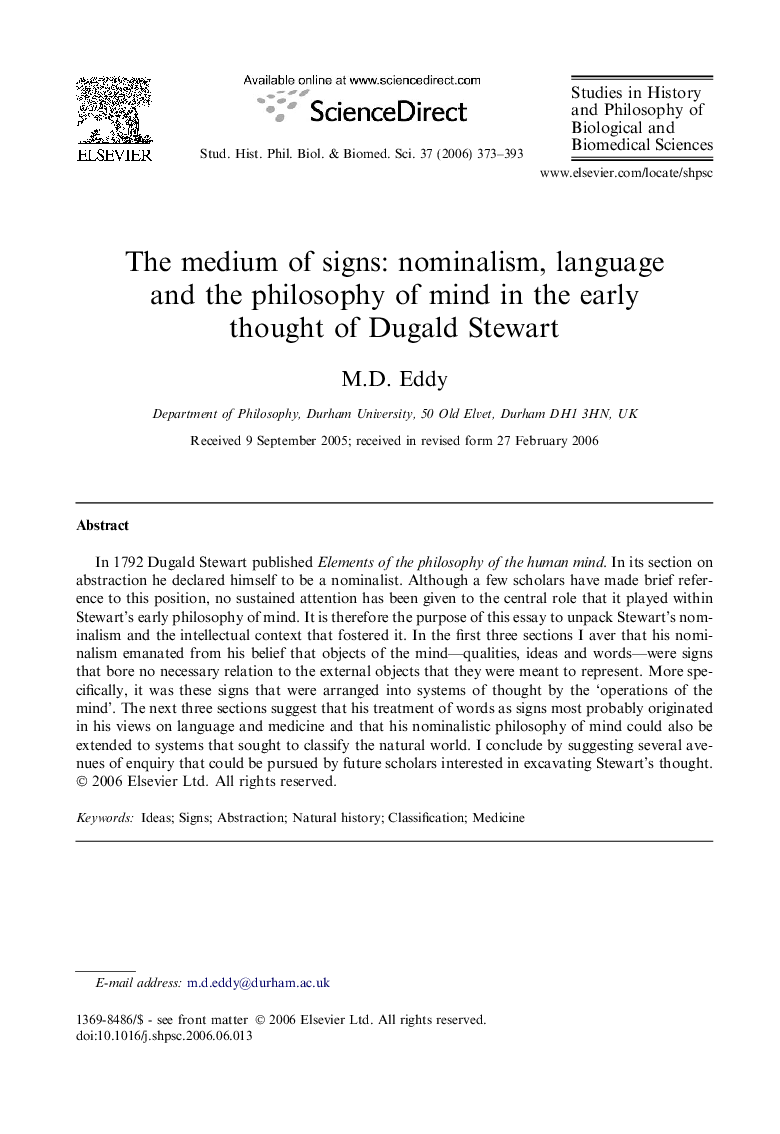| Article ID | Journal | Published Year | Pages | File Type |
|---|---|---|---|---|
| 1162115 | Studies in History and Philosophy of Science Part C: Studies in History and Philosophy of Biological and Biomedical Sciences | 2006 | 21 Pages |
In 1792 Dugald Stewart published Elements of the philosophy of the human mind. In its section on abstraction he declared himself to be a nominalist. Although a few scholars have made brief reference to this position, no sustained attention has been given to the central role that it played within Stewart’s early philosophy of mind. It is therefore the purpose of this essay to unpack Stewart’s nominalism and the intellectual context that fostered it. In the first three sections I aver that his nominalism emanated from his belief that objects of the mind—qualities, ideas and words—were signs that bore no necessary relation to the external objects that they were meant to represent. More specifically, it was these signs that were arranged into systems of thought by the ‘operations of the mind’. The next three sections suggest that his treatment of words as signs most probably originated in his views on language and medicine and that his nominalistic philosophy of mind could also be extended to systems that sought to classify the natural world. I conclude by suggesting several avenues of enquiry that could be pursued by future scholars interested in excavating Stewart’s thought.
